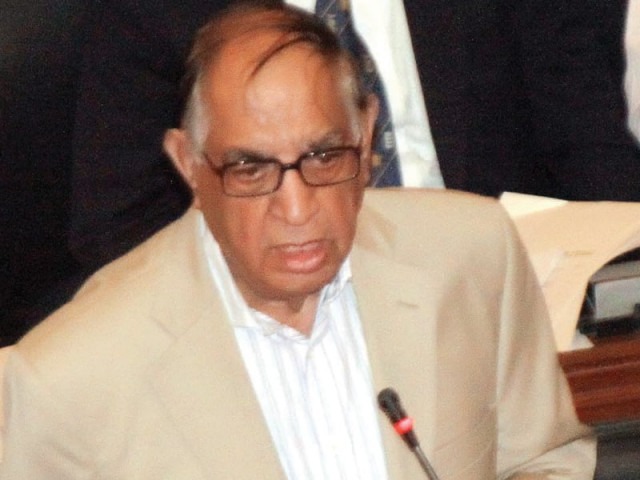Law enforcers or law breakers? No home for the homeless
27-acre beggars’ home in Korangi occupied by police personnel for 26 years.

"Several politicians have attempted to get the building back but all our efforts have been in vain," MQM parliamentary leader Syed Sardar Ahmed. PHOTO: PPI/FILE
In 1982, the Sindh government had decided to build a home for beggars where they could be provided rehabilitation and vocational training to make them productive members of the society. The dream was realised with the construction of Al-Falah Beggars Home — a state-of-the-art facility built over 27 acres.
Alas, the dream could not survive for long as, six years later, police personnel forced their way onto the property, relieving it of its former occupants. Twenty-six years on, the struggle to reclaim the land from those under oath to enforce the law continues.

The facility, now known as the Al-Falah Base, is located in Korangi and is currently home to approximately 500 personnel of the Rapid Response Force (RRF) — a special unit of commandos operating under the Sindh police. During a visit to the site, the commandos standing alert at the facility's main gate proudly claimed that their sole duty was to protect the life and property of citizens. When asked about the scandal revolving the encroachment of the base, the officer's demeanour shifted markedly. "I cannot comment on the matter," said one officer sternly. "Go away from here."
The land in question was originally allotted to rehabilitate beggars in 1982 by the then-Karachi commissioner, MM Usmani. The facility was designed by renowned architects at the time. A few years later, police commandos sprung into action and occupied the building. Few have dared to enter or attempt to evict the 'powerful' tenants since. "As chief secretary of the province in the 1990s, I had written several letters to the home department and the police to evacuate the premises," recalled Syed Sardar Ahmed, the parliamentary leader of the Muttahida Qaumi Movement. "Several other politicians have also attempted to get the building back, but all our efforts have been in vain. It seems the police are more powerful than the civil bureaucracy and politicians."
Ahmed, accompanied by the minister for parliamentary affairs, Dr Sikandar Mandhro, had recently gone to survey the property. "We were not let in!" he exclaimed. The commandos stationed at the entrance turned the two politicians away.
According to Ahmed, who has also served as Karachi commissioner in 1984, the beggars' home was established under the 'Vagrancy Act' so that beggars on Karachi's roads could be put up in a shelter home where they would be provided care and training. The facility could only run for a few years.
"Initially, the building was occupied by the Sindh Reserve Police," he recalled. It is now under the aegis of the Rapid Response Force (RRF). A boundary wall has been erected around the land where a training centre and a firing range have also been constructed. Around 18 beautifully constructed barracks have been converted into residences and offices for personnel.
For their part, the officials of the RRF believe that they have done nothing wrong. The force was only brought into effect in 2009, while the land was occupied much before that. "Yes, this used to be a beggars' home but not a single beggar ever lived here," claimed a senior official of the RRF, on the condition of anonymity. "It failed to fulfil its objectives and was being used for criminal activities, thus the police preferred to occupy it." The RRF DIG, when contacted by The Express Tribune, refused to comment on the issue.
Meanwhile, Dr Mandhro said that the matter had been taken up with the chief minister, who holds the charge of the home department. "We will evacuate the building and provide alternative land to the RRF."
Beggary falls within the domain of the social welfare department. The minister for social welfare, Rubina Saadat Qaimkhani, said that she had taken up the matter with the chief minister and the Sindh IGP. "This is a serious matter," she said. "I had taken up the issue when I was chairperson of the standing committee on social welfare in the National Assembly. Unfortunately, it could not be resolved then." She blamed 'elements' within the police force of backing the illegal occupation and hoped the matter would be resolved without further delays.
Published in The Express Tribune, April 10th, 2014.



















COMMENTS
Comments are moderated and generally will be posted if they are on-topic and not abusive.
For more information, please see our Comments FAQ